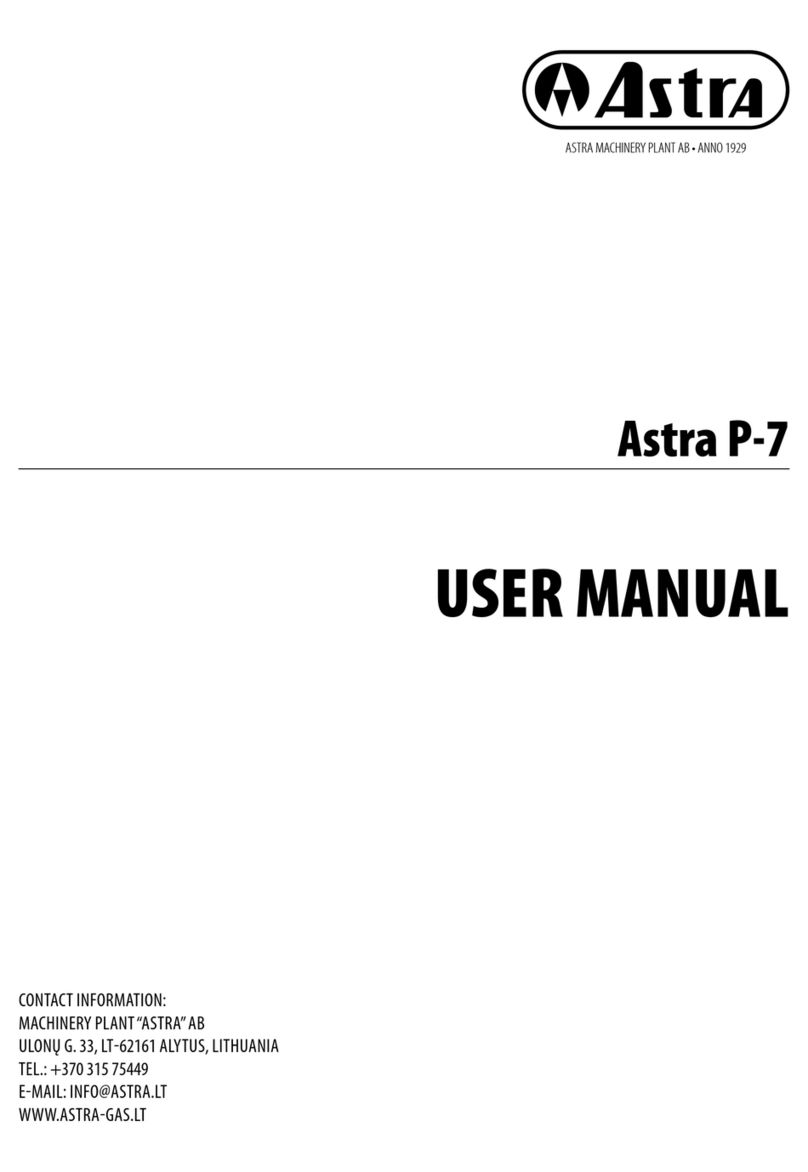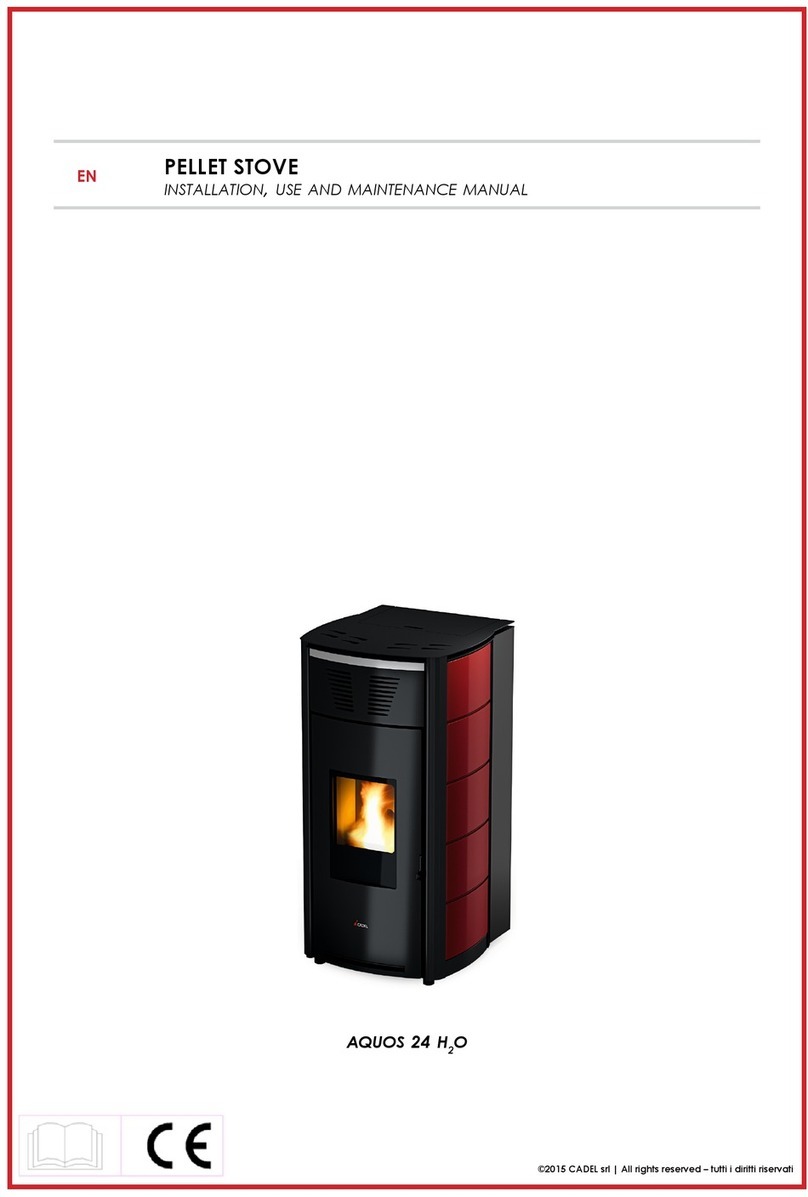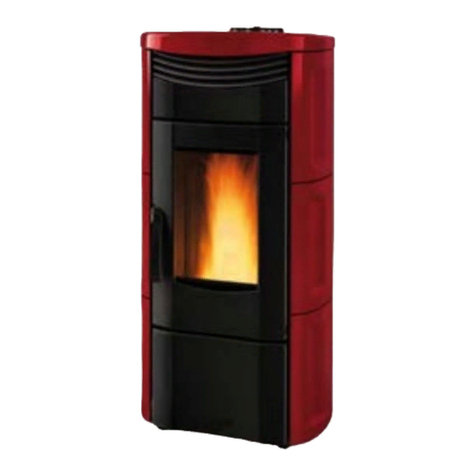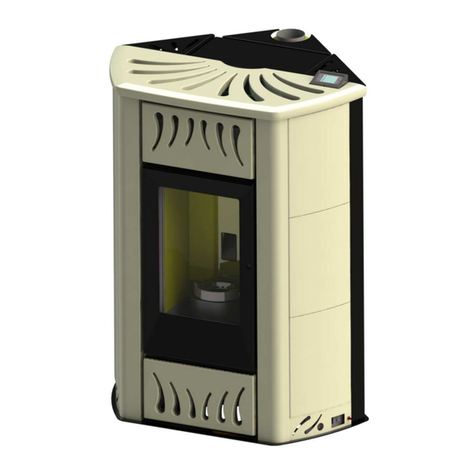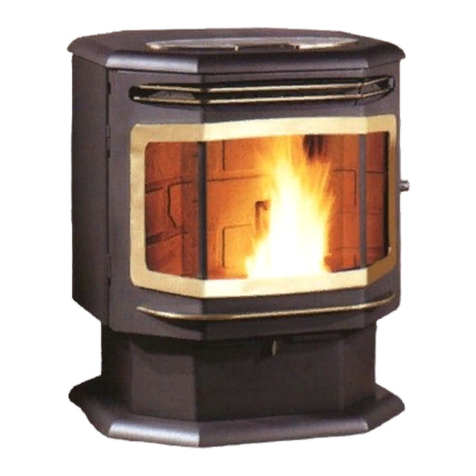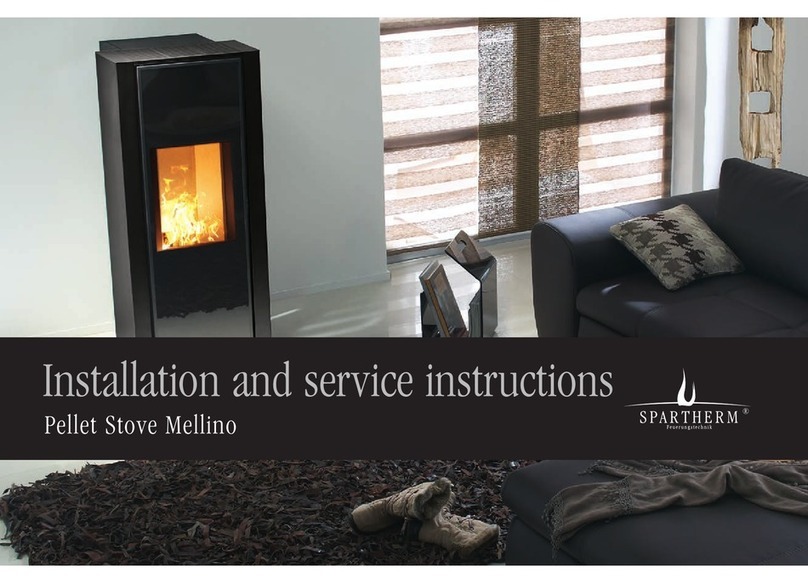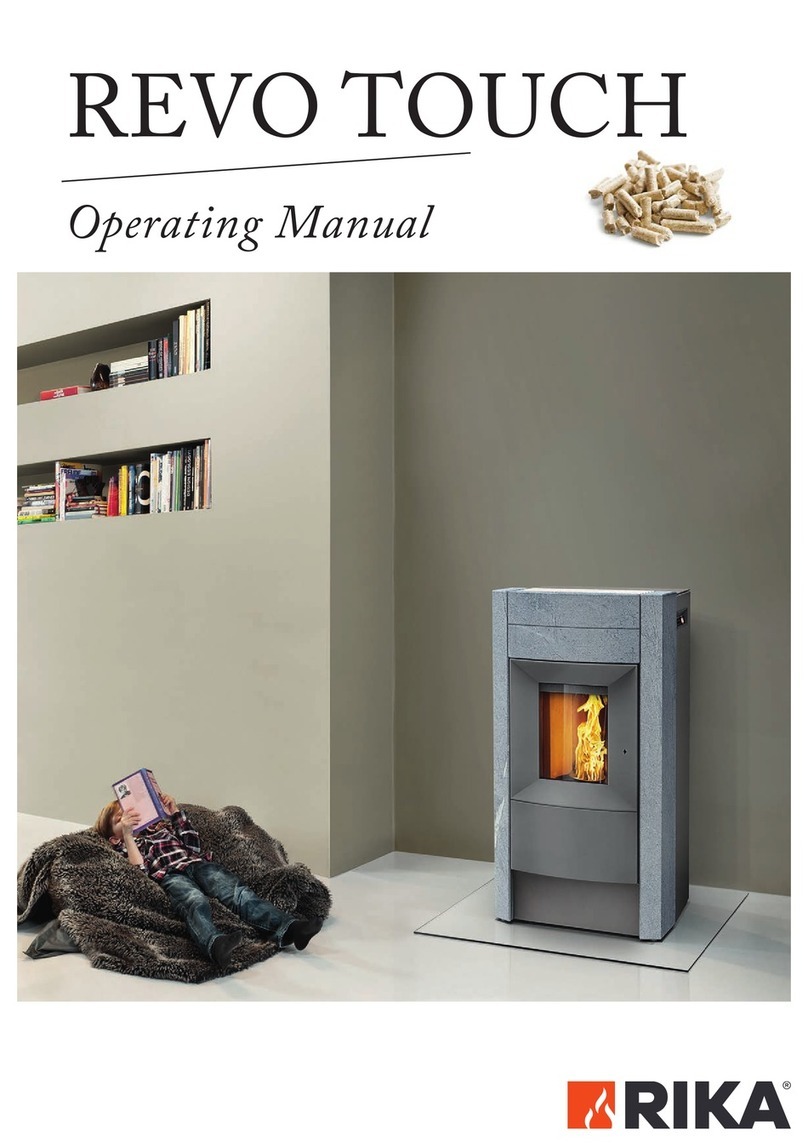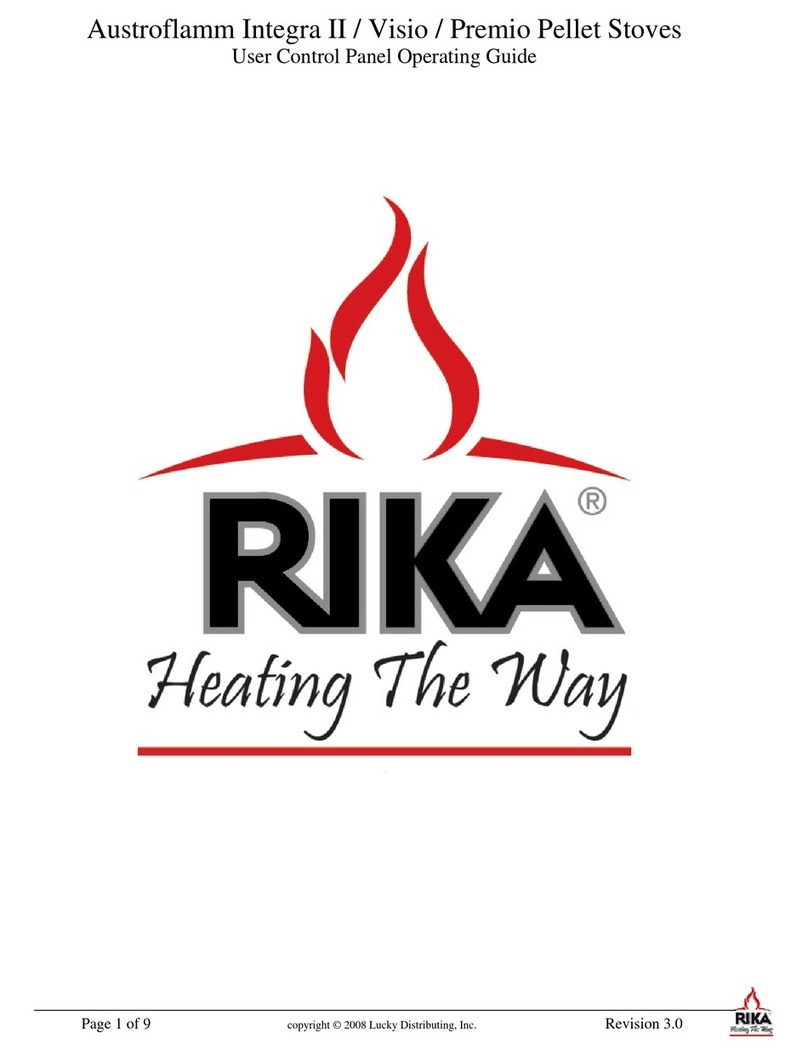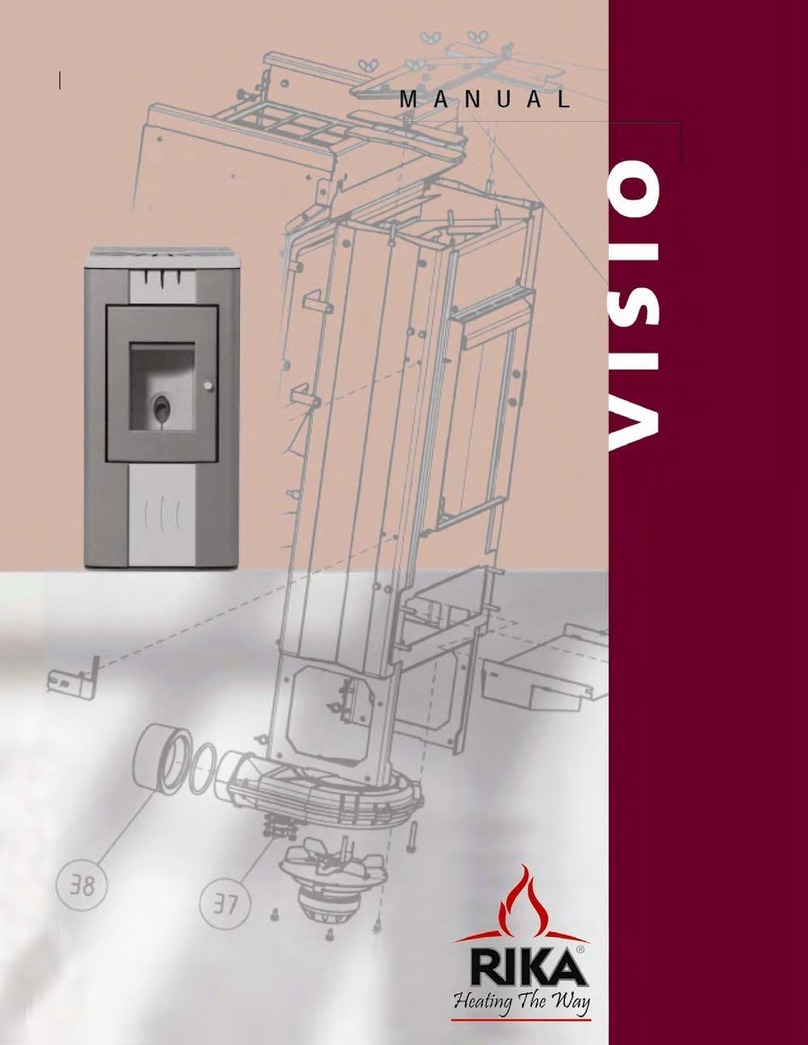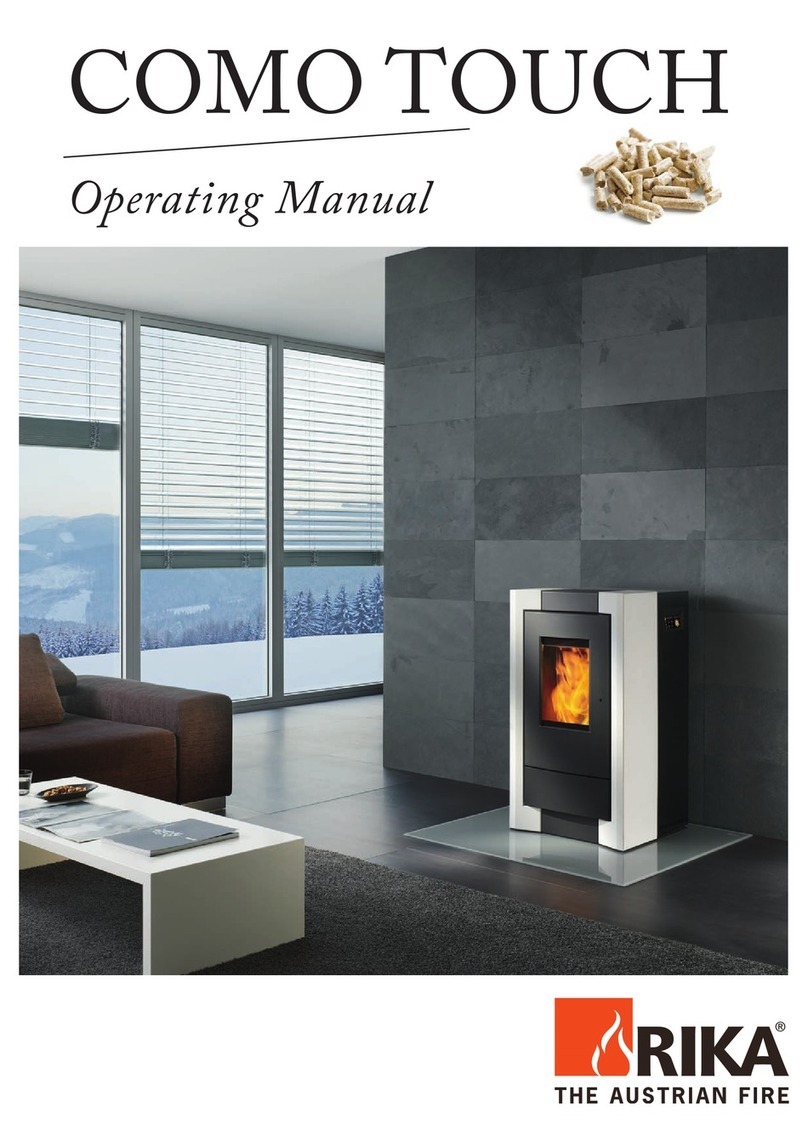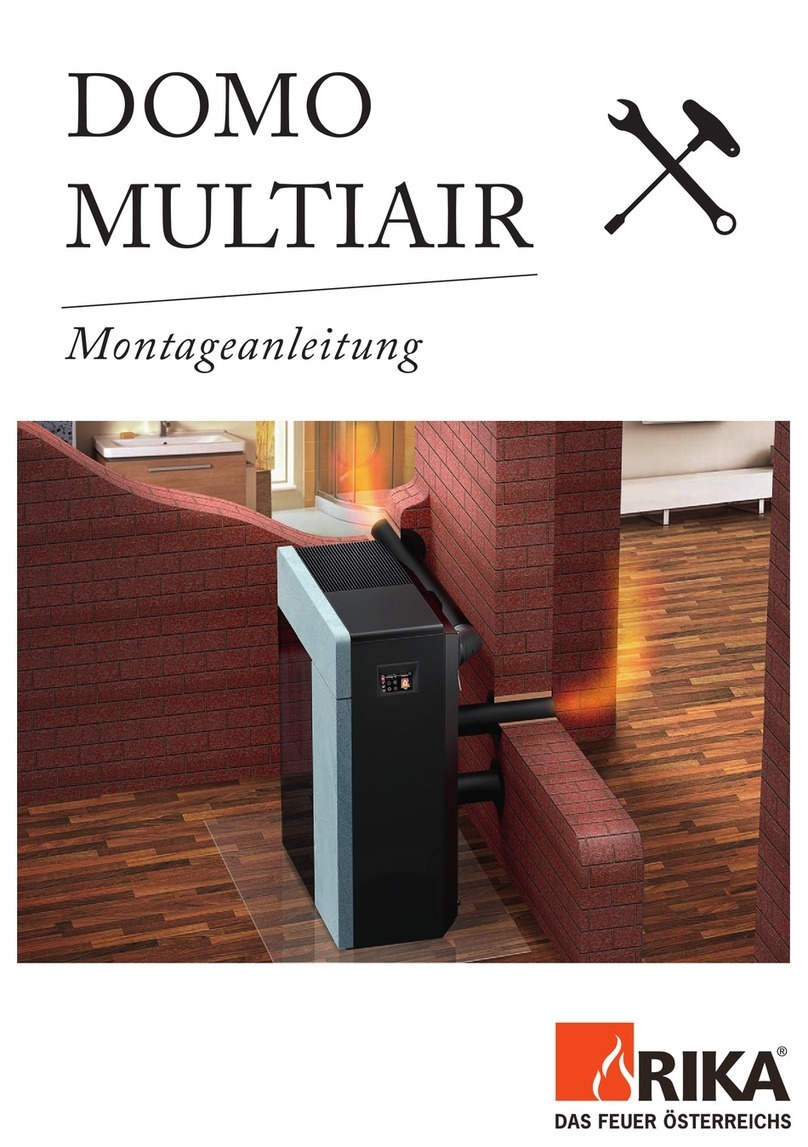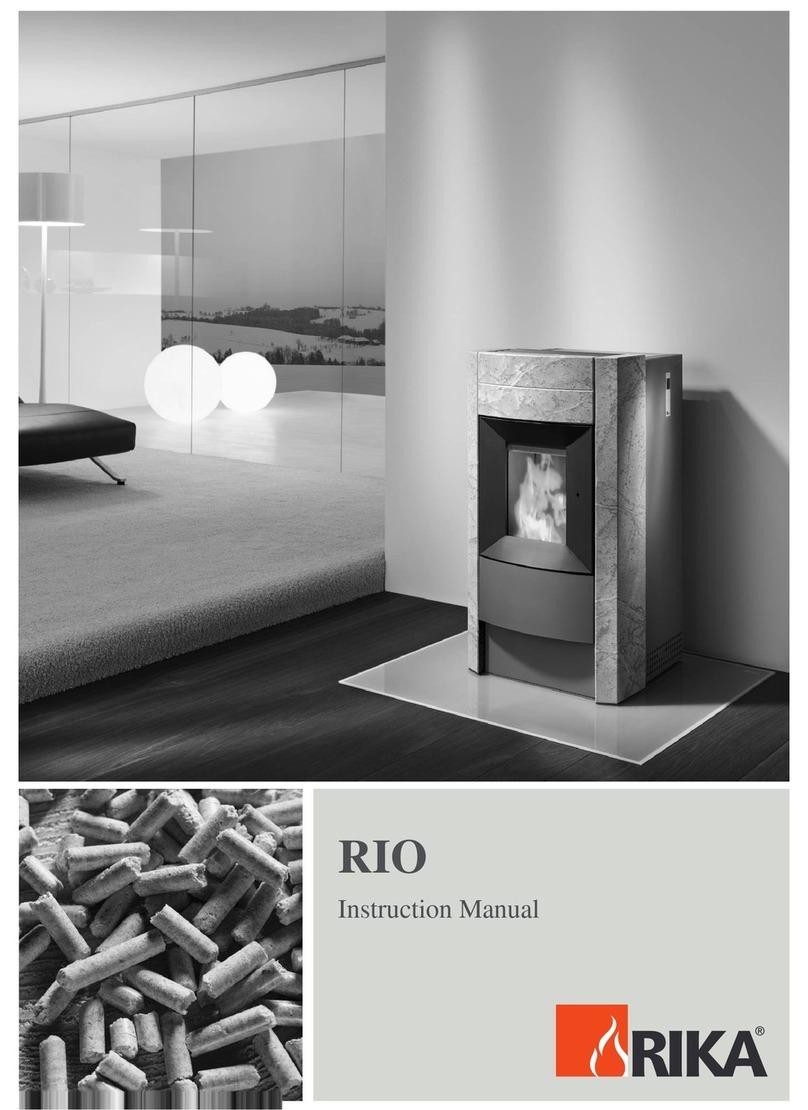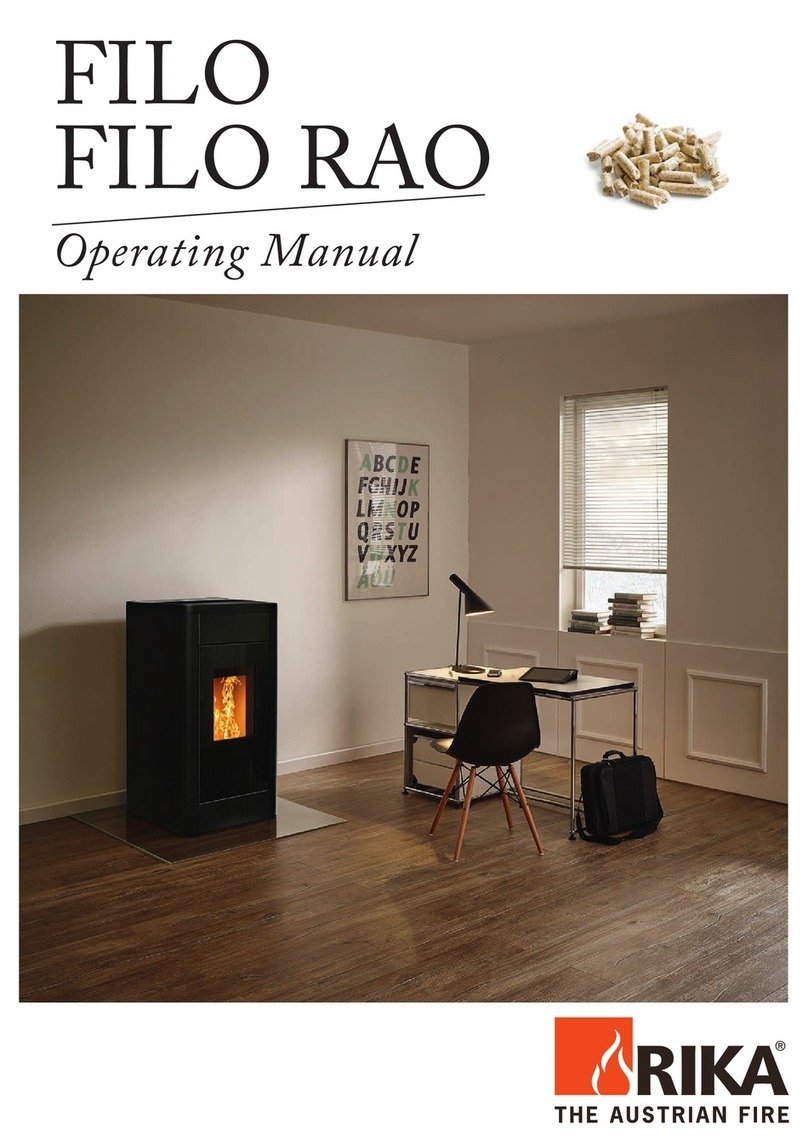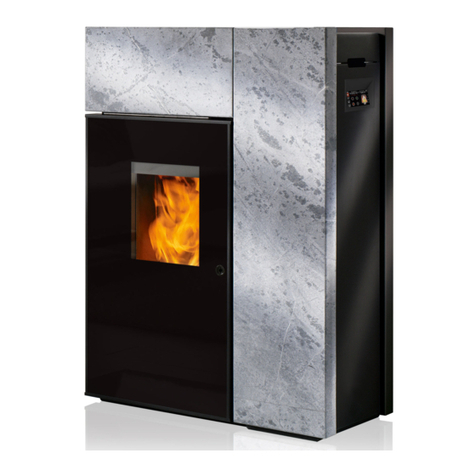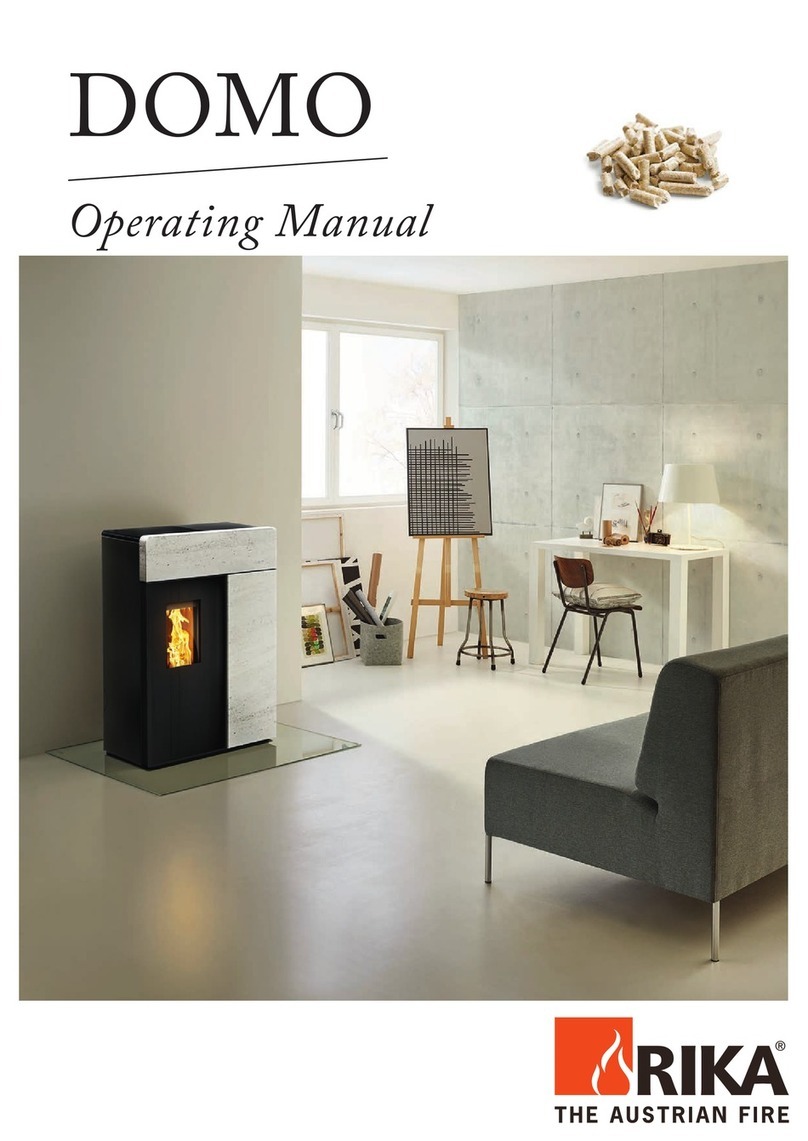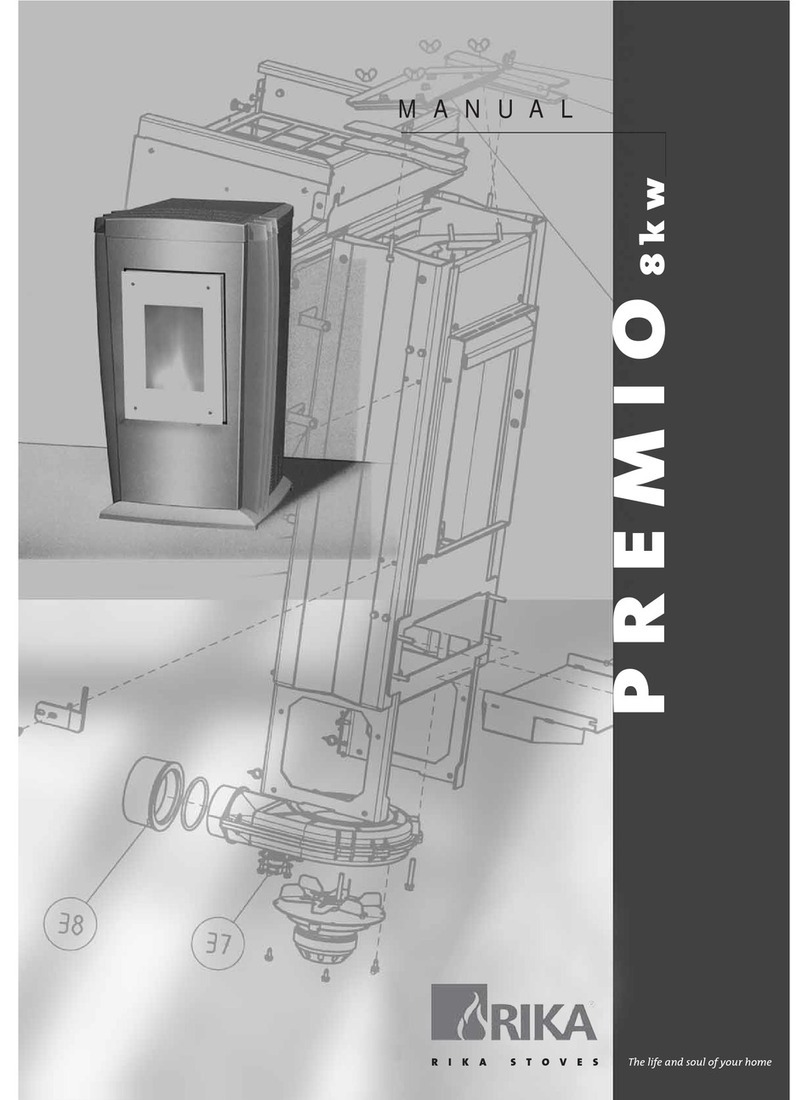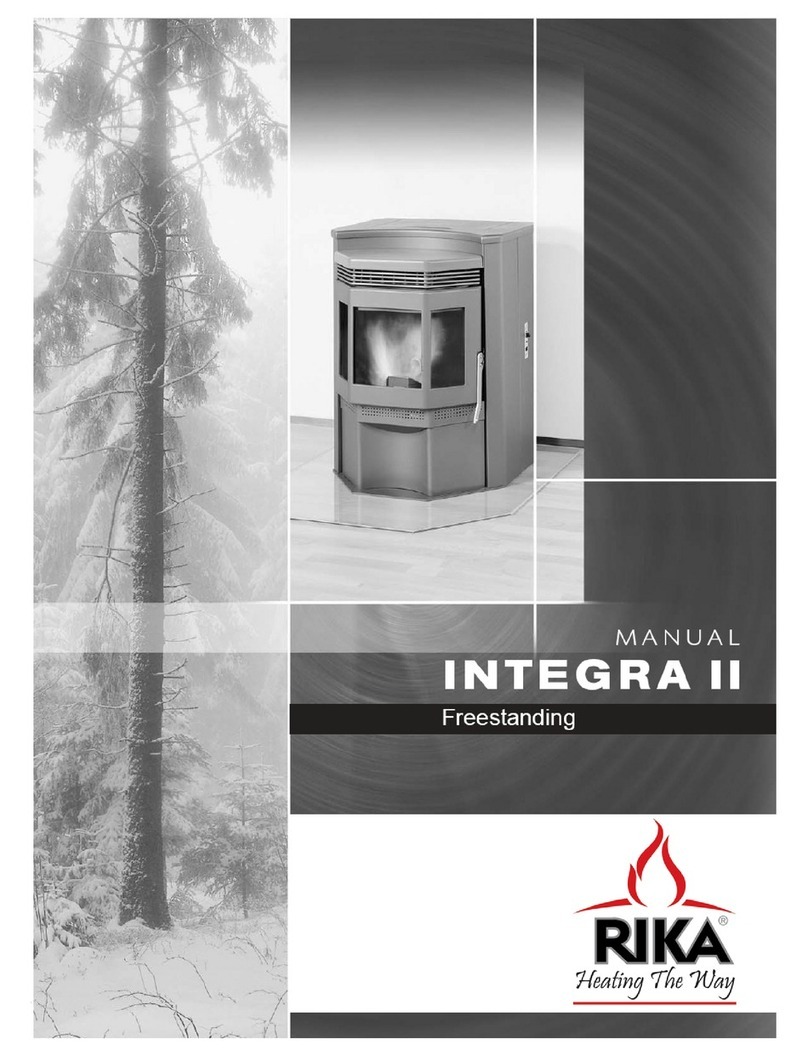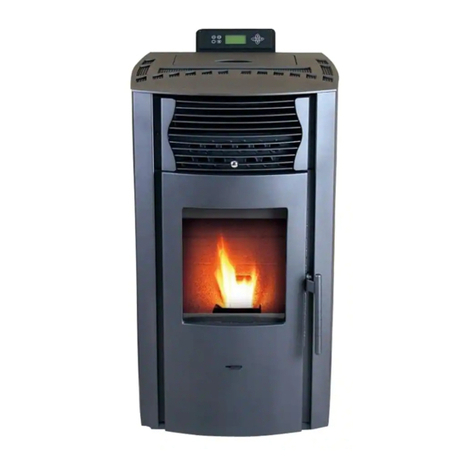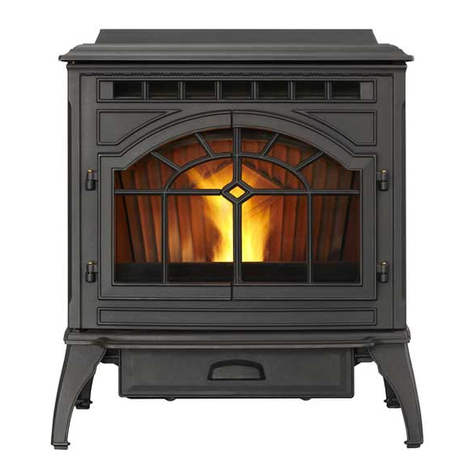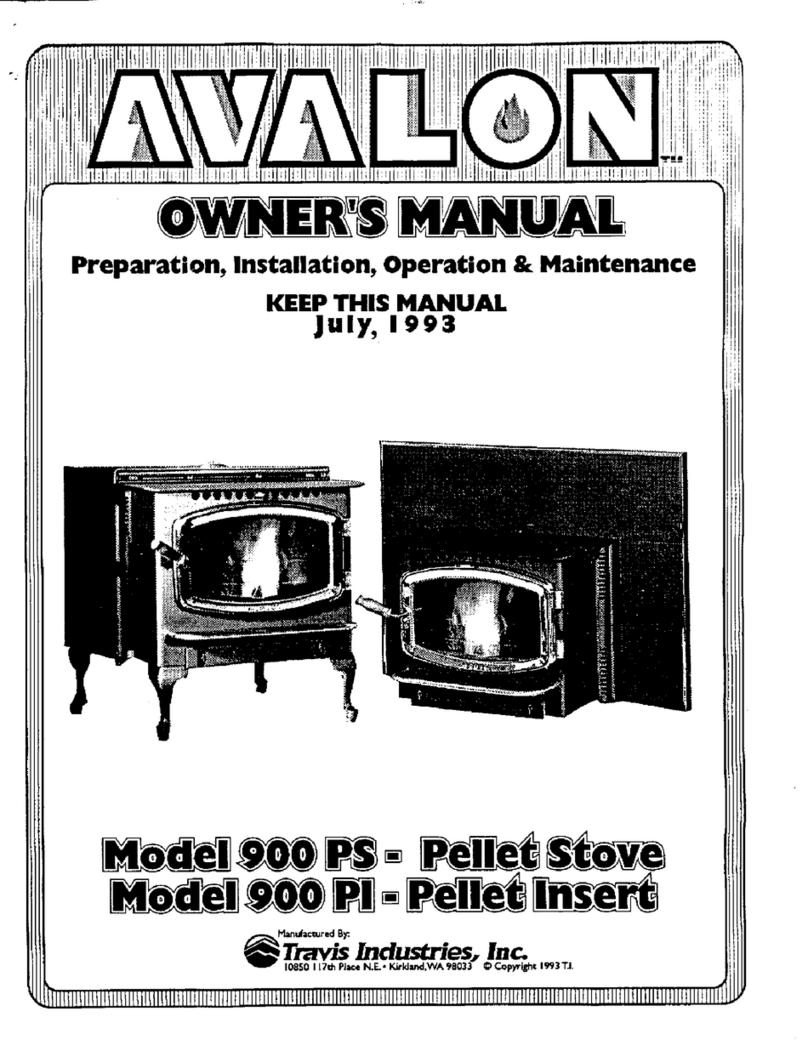2. WHAT ARE PELLETS?
Wood pellets are a standardised fuel. Every
manufacturer must adhere to certain conditions in
order to enable flawless, energy-efficient heating.
Pellets are made from wooden waste, from sawmills
and planning workshops, as well as from residue
from forestry operations. These “starting products”
are crushed, dried, and pressed into Pellet “Fuel”
without any bonding agent.
ENplus – Pellets
This new pellets are a standard sets new
benchmarks in the European pellet market. The
traceability of pellets is ensured thanks to the use of
identification numbers. The pellet manufacturers’
production facilities and manufacturing processes
are reviewed every year. A quality assurance
system ensures the pellets comply with the
requirements of the new standard and that the
conditions for trouble-free heating are guaranteed.
Please request tested fuel and a list of monitored fuel
manufacturers from your pellet stove dealer.
Use of poor quality or non-approved pellet fuel impairs
the function of your stove and may lead to lapsing of
the warranty, guarantee and associated product
liability. Observe the ban on incinerating waste!
Only burn pellets that have been inspected according
to ÖNORM, DIN Plus or ENplus-A1.
WOOD PELLET SPECIFICATION according to ENplus – A1
Parameter Unit ENplus-A1
Diameter mm 6 (±1)2)
Length mm 3.15 to 403)
Bulk density kg/m³ ≥600
Calorific value MJ/kg ≥16.5
Water content Ma.-% ≤10
Fine fraction (<3.15 mm) Ma.-% ≤1
Mechanical rigidity Ma.-% ≥97.54)
Ash content Ma.-%1) ≤0.7
Ash softening temperature (DT) °C ≥1200
Chlorine content Ma.-%1) ≤0.02
Sulphur content Ma.-%1) ≤0.03
Nitrogen content Ma.-%1) ≤0.3
Copper content mg/kg1) ≤10
Chrome content mg/kg1) ≤10
Arsenic content mg/kg1) ≤1
Cadmium content mg/kg1) ≤0.5
Mercury content mg/kg1) ≤0.1
Lead content mg/kg1) ≤10
Nickel content mg/kg1) ≤10
Zinc content mg/kg1) ≤100
1) in an anhydrous state
2) Diameter must be specified
3) a maximum of 1% of the pellets may be longer than 40 mm; max. length is 45 mm
4) The limit value of ≥97.7 Ma.-% applies when conducting measurements with a Lignotester (internal control)
PELLET STORAGE
In order to guarantee problem free burning of the
wooden pellets, it is imperative necessary to store
the fuel as dry as possible and free from impurities.
Pellets should not be kept in sacks outdoors or
stored in a manner where they are exposed to the
environment. This can lead to blockages in the
screw conveyor - "screw stoppers" are excluded
from the warranty.
NOTE: Waste and liquids may not be burnt in the
stove!
